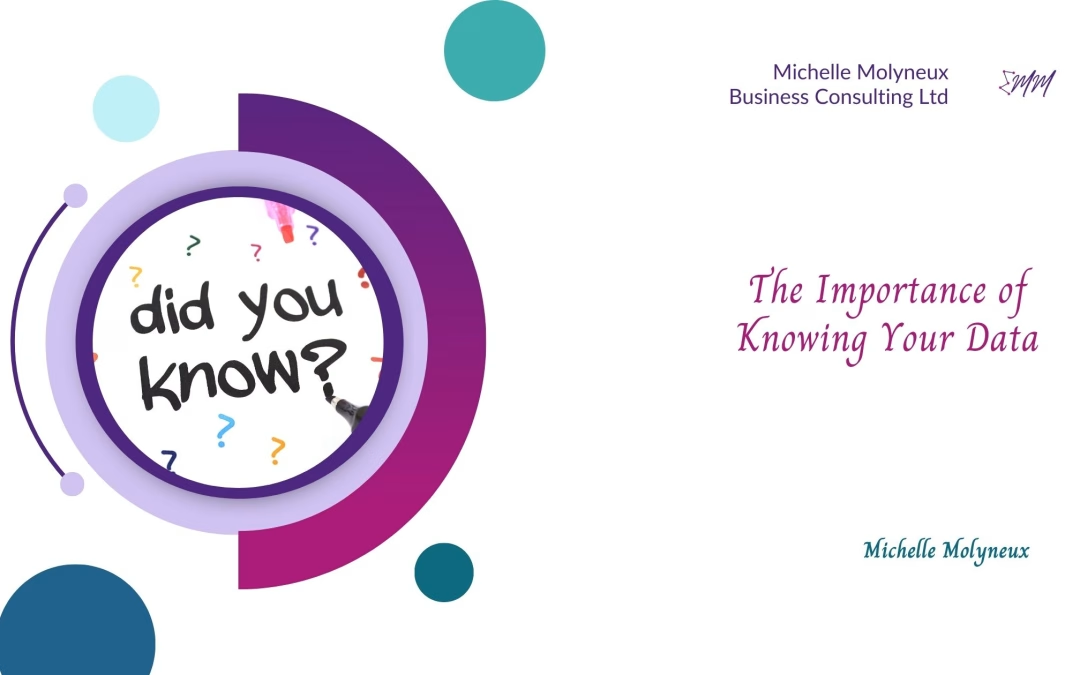No matter the size of our business, we handle a vast array of data from various sources, including contacts, prospects, clients, customers, suppliers, staff, volunteers, and contractors. This data, which can be classified into personal data, sensitive data, engagement data, analytics, and non-personal business information, is pivotal for operational success. Understanding and managing this data is a best practice and a legal requirement, especially under regulations like the GDPR, the Data Protection Act, and PECR.
Understanding Your Data
Businesses typically manage diverse types of data:
- Personal Data: Identifiable and related information such as names, contact details, dates of birth, education, and employee information.
- Sensitive Data: Includes race, ethnic origin, political opinions, religious or philosophical beliefs, trade union membership, genetic data, biometric data, health data, sex life, or sexual orientation.
- Engagement Data and Analytics: Information derived from interactions and analysis of user behaviour.
- Non-Personal (Business) Information: Operational and transactional data not directly linked to individuals.
Knowing what data you have is crucial to avoid unnecessary collection, ensuring timely deletion, and efficiently collating information for Subject Access Requests (SARs). It also aids in managing consent and responding to regulatory requirements.
Data Mapping and Inventory
Data mapping is a fundamental yet often overlooked process. It involves creating a comprehensive inventory of the data you collect, detailing where it comes from, why it’s collected, where it’s stored, and how long it’s retained. This can be efficiently managed using a spreadsheet, aligning the data map with the customer journey. Key questions to consider include:
- What information do you collect?
- Who and where do you get it from?
- Why are you using it?
- Where are you storing it?
- How long do you need it?
A thorough data map forms your Record of Processing Activities (ROPA) foundation, ensuring you have a legal basis for all data processing activities. It sounds worse than it is. You can combine them.
Legal and Compliance Aspects
Under regulations like GDPR, knowing what data you collect is a legal requirement. The first critical step in data privacy is creating an integrative view of your systems and the personal data collected, transferred, and retained. This comprehensive understanding helps manage consent and SARs and is essential for compliance.
Expanding the data map to include a ROPA ensures you can demonstrate the legal basis for your data processing activities, thereby supporting compliance and mitigating risks.
Risk Management
Without a clear understanding of your data, you expose your business to several risks, including data breaches and duplication across platforms. The consequences of poor data management can be severe, leading to time loss due to inaccurate or unknown data and becoming overwhelmed with requests. Effective data management mitigates these risks, ensuring operational efficiency and accuracy.
Benefits of Knowing Your Data
Understanding your data brings multiple benefits:
- Operational Efficiency: Streamlined processes and reduced redundancy.
- Cross-functional collaboration: Enhanced communication and coordination across teams.
- Customer Trust: Demonstrates a commitment to data protection, fostering trust and loyalty.
Knowing that your data is not confined to apps and databases but also encompasses spreadsheets, emails, and other formats ensures comprehensive data management.
Practical Steps
To better understand your data, start with these steps:
- Determine what data fields to include in your map.
- Establish standard naming conventions.
- Define schema logic or transformation rules.
- Test for logic on a small sample.
- Involve representatives from each team, including subcontractors, to ensure all data processing activities are accounted for.
Role of a Data Protection Consultant
As data protection consultants, we help businesses create data maps and ROPAs. Our outsourced service handles these tasks comprehensively, ensuring legal compliance and effective data management. When choosing a data protection consultant, look for expertise in data mapping and compliance and a proven track record of helping businesses navigate the complexities of data protection regulations.
Knowing your data can enhance operational efficiency, ensure compliance, and build stronger customer relationships. Book a clarity call and let us help you navigate this essential aspect of modern business.
Other blogs that you may be interested in
